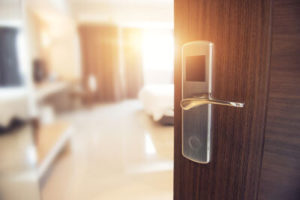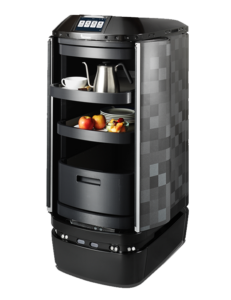Anthony Melanson – July 8, 2019
Delivering great hotel service never goes out of style. Yet, how it’s delivered and the emphasis on what is important changes and evolves. We are at an exciting cross-road in the hospitality industry where the expectations of service are changing and hotels need to provide a wide gamut of service styles.
 Segmentation Challenges
Segmentation Challenges
The challenge with varying service expectations is that it’s very difficult to optimize them for a wide range of guest preferences. In part, this is why new hotel brands have proliferated. How can you provide efficient service without alienating guests who want things to slow down and want a personal touch? How can you provide a highly personal touch but not frustrate guests who just want to get on with their stay?
Rise of Guest-Facing Technology
It wasn’t so long ago that hotels implemented technology to allow guests to bypass the front desk at check-in. This is a choice offered at hotels – and there are still people at the front desk waiting to help you. In an article entitled Friend, Not Foe: Why Hospitality Should Embrace Automation and AI it describes IBM Watson’s “Ivy” which handles 90% of all real-time requests from guests. Mobile concierge services have proliferated and are used in lieu of the face-to-face conversation with the aforementioned named assistant typically stationed in the hotel lobby.
Accommodating Guest Preferences
Some might say technology is cold and impersonal and others might say it’s convenient and efficient. The reality is both can be equally true for different people. The question isn’t so much whether technology represents “good” service or “bad“ service, but rather how can you apply it at the right time in the right situation with the right guest and leverage it to help your staff provide even higher service levels – based on the guest’s preferences. The best technology allows guests to tailor their experience.
Hotel Robots
Technology actually enables the hotel staff to provide greater levels of service since their time is available. One example of this principle at work is Aethon’s mobile robots which to free up people to do what they do best – have personal, human interaction. In hotels, the T4G mobile robot can deliver meals, linens or other goods securely to guest rooms to become part of the efficient and engaging guest experience. It optimizes efficiency and privacy and becomes a perfect experience for the guest who values those service attributes. Yet, it frees up the staff to provide greater hands-on service to guests who want the human touch. It breaks the trade-off and allows hotels to optimize the guest experience based on their preference.
It’s easy to think that if you have robots you become a low-touch hotel but that is a false trade-off. A delivery robot is a terrific option for the guest who wants it and need not be a mandate for all guests. By offering it, a hotel accomplishes two goals at the same time. They provide a preferred experience and create the space for their staff to spend more time with guests who want to make the connection. It’s all about optimizing the guest experience

